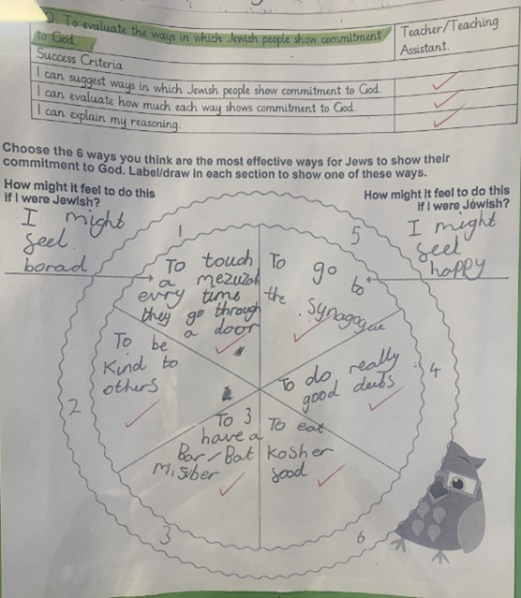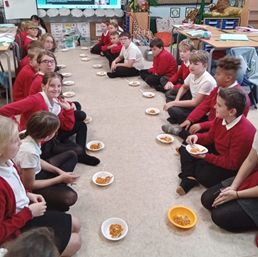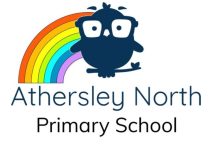Religious Education
"Teach us to give and not count the cost." - Saint Ignatius
Pupils at Athersley North Primary School are taught about a range of religions, to develop their understanding and tolerance of others. They are taught to respect different beliefs to their own through curriculum and immersive experiences.
At ANPS, pupils are taught knowledge and understanding around a range of different religions and worldwide views, including Christianity and other religions with a significant local presence; so that they can understand, describe, explain, analyse and investigate; allowing them to appreciate the beliefs and practices of those around them. It is our aim that pupils are able to reflect positively on their own identity, beliefs, values and experiences thus developing them as active and responsible citizens. Religious language use is ambitious and aspirational.
Pupils will recognise diversity, meanings and values within and between communities and amongst individuals due to their limited exposure to other religions, faiths and beliefs and thus promote tolerance and mutual respect towards others.
The RE curriculum enables pupils to develop positive attitudes by promoting shared values and challenging racism and discrimination.
Curriculum Intent
Following our Long-Term Progression Plan, children learn through building on their prior knowledge. Links to Religious Education begin in Early Years in which children begin to learn about a sense of community and belonging as well as key religious festivals such as Diwali, Easter and Chinese New Year. Children then develop this knowledge as they progress through schools by focussing on different progression strands throughout their topic of learning.
RE Curriculum Progression Example
RE Long Term Plan
Key Vocabulary
The RE curriculum at ANPS is a combination of both the Barnsley Locally Agreed Syllabus and Discovery RE, using the two together enables the topics and knowledge of the religions to be taught effectively and creatively. Children are exposed to key religious vocabulary throughout their learning, carefully linked to the topic of study. This is outlined on the long- and medium-term planning, progressively building throughout a child’s primary school career.
Vocabulary Progression
Knowledge at the Heart of the Curriculum
At ANPS our Long Term Planning has six key concepts including: Beliefs and Teachings, Practices and Lifestyles, Expression and Language, Identity and Experience, Meaning and Purpose and Values and Commitment. This ensures that children progress with their learning throughout RE as they are building on previous knowledge as well as developing their knowledge of different key areas. For example, when children learn about a teaching within RE such as the story of Easter, they will understand what Christians believe, they will then develop their understanding by learning about the practice of Easter and how Christians celebrate this time. The careful planning of this ensures that learning is not repeated and is developed, encouraging children to question and consider different beliefs and ideas.
In order to ensure that our curriculum is effective, children complete an assessment activity at the end of a topic to show case their learning and understanding of their topic. This activity supports our teachers when using the Fischer Family Trust (FFT) assessment trackers to track pupils progress across KS1, LKS2, and UKS2 to judge if children are working at the expected level and are making progress. The FFT assessment trackers have been created using our Long-Term Progression plans to include our curriculum progression statements.
At ANPS, we use Pupil Voice not only to assess how well pupils retain the knowledge that they have been taught but also to ensure their voices are heard, this enables pupils to share their learning as well as their feelings towards a topic.



Knowledge Organisers
Knowledge Organisers are introduced at the start of a new theme/unit of work. This tool is used to help pupils gain, retain and build the knowledge and skills set out in long and medium term plans.
Below are some examples of Knowledge Organisers.
